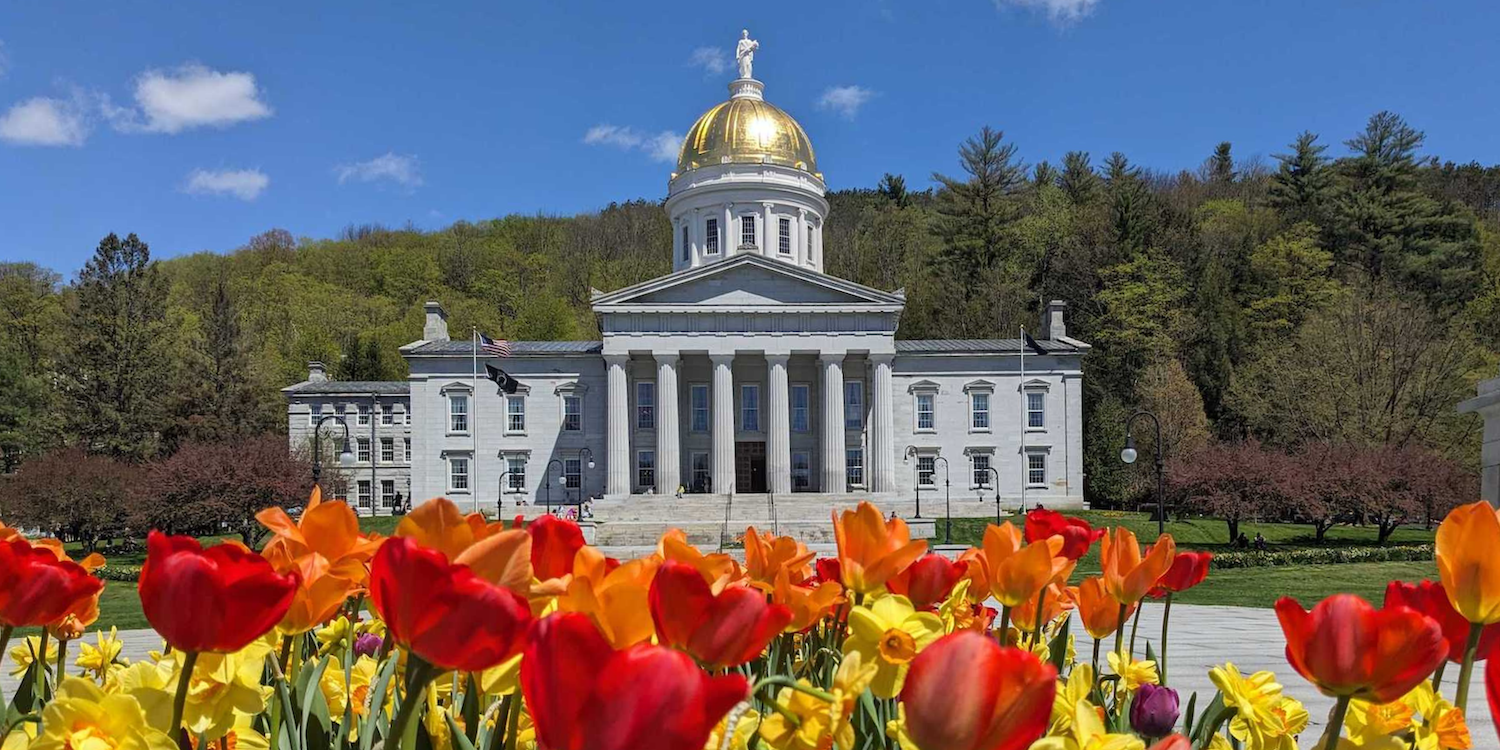Montpelier, VT – The Vermont Senate gave final approval today to landmark legislation that holds the largest fossil fuel companies financially accountable for a portion of the costs of climate change.
On a voice vote, Senators approved final passage of the Climate Superfund Act (S.259). Earlier this month, 106 of the 150 members of the House of Representatives voted in favor of the legislation on second and third readings. In April, the Senate gave the bill preliminary passage on a vote of 26-3. S.259 earned tripartisan support in both chambers.
The bill now heads to Governor Phil Scott for action. He can either sign the legislation, veto it, or take no action for five days and the bill will become law without his signature. If Scott vetoes the legislation, the General Assembly will reconvene in mid-June to consider an override vote.
“With climate change putting so many Vermonters underwater, literally and financially, it would be tragic for Governor Scott to veto this bill,” said Paul Burns, executive director of the Vermont Public Interest Research Group (VPIRG).
“Vermont taxpayers can’t afford the staggering costs of climate change,” said Lauren Hierl, executive director of Vermont Conservation Voters and a Montpelier city councilor. “S.259 requires Big Oil to pay its fair share.”
“For decades, fossil fuel corporations knowingly destroyed our planet for short-term profits,” tweeted U.S. Senator Bernie Sanders. “I am proud that Vermont will go further than any other state in forcing the fossil fuel industry to pay for the destruction caused by the crisis of climate change.”
When enacted, the legislation will require the State Treasurer to calculate the costs of climate change caused by fossil fuel companies during the covered period of 1995-2024.
The Agency of Natural Resources will then issue cost recovery demands to the fossil fuel companies responsible for more than one billion tons of greenhouse gas pollution based on their share of global fossil fuel-related emissions from that time period.
Funds received from the fossil fuel companies will be used for climate adaptation, recovery and resilience expenses, many of which will be identified through the Resilience Implementation Strategy initiative that Gov. Scott and Treasurer Mike Pieciak announced in January.
Treasurer Pieciak testified in favor of the legislation and wrote in April 2023 that, “As Vermont explores ways to finance the necessary investments to help combat and adapt to climate change, it only seems fair to ask those who most significantly contributed to the problem to help foot the bill.”
The legal authority for the legislation is the same that undergirds the federal Superfund law that has cleaned up more than a thousand toxic waste sites across the country, including several in Vermont. This “Polluter Pays” principle has withstood legal challenges for decades.
Testifying to the Senate Judiciary Committee in February, Vermont Attorney General Charity Clark said, “I support the policy behind this bill. I believe in a ‘polluter pay’ model. It makes sense that the major contributors to the climate crisis we are experiencing here in Vermont should pay a fair share when it comes to our costs [of] dealing with that crisis…. If we are sued, I will proudly defend this bill.”
Elena Mihaly, Vice President of Conservation Law Foundation Vermont said, “This is groundbreaking legislation. While many states have tried to hold Big Oil accountable through litigation, Vermont will be the first state to pursue accountability through legislation.”
Advances in attribution science make the type of accounting considered in S.259 possible. Associate Professor Justin Mankin of Dartmouth shared written testimony explaining that, “While quantitative linkages between individual emitters and particularized harm were not feasible 20 years ago …. they are now. Science is no longer an obstacle to the justiciability of climate liability claims.”
An analysis conducted by Rebuild by Design, Vermont: Atlas of Disaster, found that between 2011-2021, Vermont experienced 17 climate-related disasters – tied for seventh most in the country, and that recovery costs from those events, on a per capita basis, were the fifth highest in the nation.
Johanna Miller, Energy & Climate program director at the Vermont Natural Resources Council, said, “After last summer’s floods, heat, and wildfire smoke, it’s clear that Vermont isn’t immune to climate change and the costs are in the billions. If Big Oil doesn’t pay its fair share, the entire bill is going to fall on taxpayers.”
A May 2023 survey of Vermont voters conducted by Data for Progress found that Vermonters support the idea of Climate Superfund by a margin of 2-to-1.
“Credit where credit is due,” said Ben Edgerly Walsh, Climate & Energy director at VPIRG. “Senator Dick Sears of Bennington County did a masterful job of steering this bill through the Legislature. He corralled advocates, industry, the Agency of Natural Resources, legal scholars, and leading scientists around a consensus bill that won tripartisan supermajority support in the House and the Senate. I hope Governor Scott will take the side of Vermonters and sign the Climate Superfund Act.”
###
Contact:
Ben Edgerly Walsh, VPIRG: bwalsh@vpirg.org
Anthony Iarrapino, Conservation Law Foundation: athony@ilovt.net
Lauren Hierl, Vermont Conservation Voters: lhierl@vermontconservationvoters.org
Johanna Miller, Vermont Natural Resources Council: jmiller@vnrc.org




